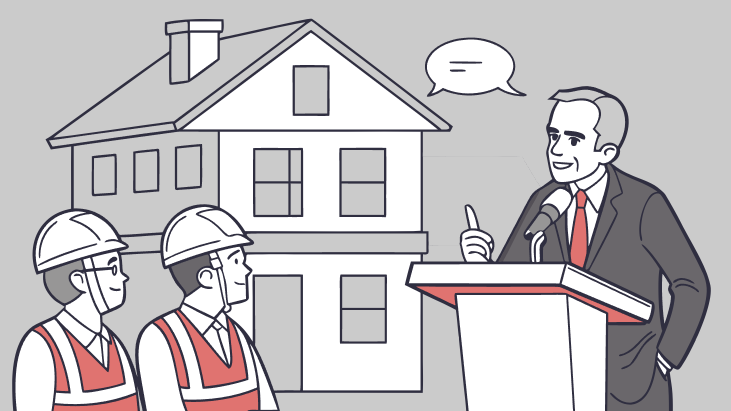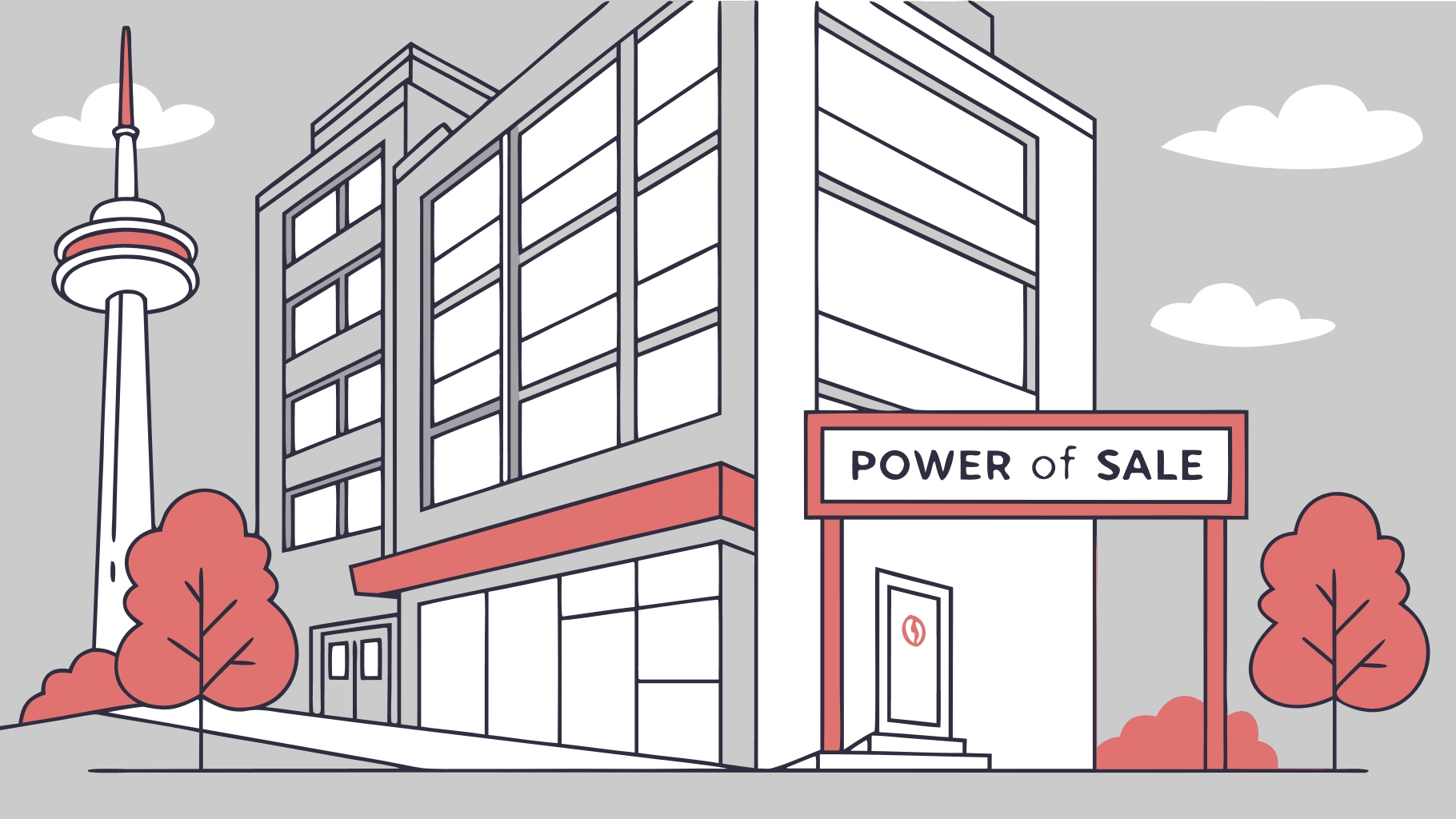Canada finds itself in the grip of a severe housing crisis, with experts estimating a staggering shortage of 3.5 million homes. At first glance, the proliferation of condominiums in major urban centers like Toronto might seem like a step towards alleviating this problem. Building high density residences such as condos are somewhat of a viable solution in urban areas where land prices have been climbing out of control.
However, a closer examination reveals a more complex and troubling reality. There’s an all-out crisis that’s brewing in the condo market, which not only fails to address the housing shortage but has, in fact, reached a crisis point of its own, potentially exacerbating the broader housing issues facing the nation, and taking down an entire “cottage industry” that Canadians have used as a wealth building vehicle for the past 20 years.
The Housing Shortage: A National Emergency
The roots of Canada's housing crisis run deep, stemming from a perfect storm of factors that have been brewing for years. Population growth, fueled by both natural increase and immigration, has consistently outpaced new home construction. This imbalance is further compounded by a lack of diverse housing options in urban areas, where zoning restrictions and red-tape often limit development to high-density projects like condominiums. Rising construction costs and labor shortages have also played a significant role in slowing down new developments across all housing types.
Despite the urgent need for 3.5 million additional homes, government initiatives have struggled to keep pace with the growing demand. The result is a housing market that has become increasingly unaffordable for a large segment of the population, from first-time homebuyers to growing families and newcomers to the country.
The Condo Market Crisis: A roll of the dice for investors and speculators
For years, condominiums have been leveraged by both investors and speculators to build wealth. Many “Ma and Pa” investors have purchased condo units and rented them out over the years with the idea that they are building equity, but also enjoying the meteoric appreciation that some condos have seen.
On the other hand, condos have attracted many speculators, particularly on pre-construction projects where one can put down a small deposit on a condo unit or two, and flip the contract prior to closing. Many speculators have done incredibly well with this approach as markets like Toronto or Vancouver saw price appreciation in record numbers, particularly in a post-covid era. This “cottage industry”, also known as assignment sales, has been happening on mass in the background. There are typically no stats on assignment sales as they are often done without listing on the MLS system, however, it has not been uncommon for 40-50% of a condo project to change hands prior to closing. This gives you a bit of a magnitude of how prevalent flipping assignments has been, until recently.
The Ripple Effect: From Investor Losses to Market Stagnation
Every good party must come to an end, doesn’t it? The difference is, there’s always those few people that stick around, unbothered when the music stops. This isn’t the case in the condo market, unfortunately, and if there are any remnants of the party, things are about to go from bad to worse.
First, let’s talk about those condo investors. I remember attending a conference in 2019 where CIBC’s chief economist, Benjamin Tal delivered a keynote. Tal is an outspoken, often sarcastic, critic of the housing market. “A condo is the new GIC” said Tal, in this conference. GIC refers to “Guaranteed Investment Certificate”, which is essentially a deposit tool where you are guaranteed your principal investment, plus interest at the end of the term.
In other words, Tal was (sarcastically) echoing the sentiment at the time. It was a believe that a Toronto or Vancouver condo is the safest investment you can make. You simply could not lose as an investor or speculator. Fast forward five years, GICs are still popular. Condos have unfolded to be far from a guaranteed investment, despite an incredible post-covid ride.
The Condo Market Crisis: Investors are deep under water
A recent report has unveiled a troubling trend: the vast majority of new condo investors in the GTA are losing money every month. This financial strain on investors has set off a chain reaction that ripples through the entire housing ecosystem.
The report's findings paint a grim picture. Over 80% of GTA condo investors are cash flow negative, with average monthly losses ranging from $1,000 to $1,500 per unit. These investors, many of whom entered the market hoping for long-term appreciation to offset short-term losses, now find themselves caught in a tightening financial vice. Rising interest rates and inflation have only exacerbated the problem, making it increasingly difficult for investors to cover their costs.
Unfortunately, this report is only the tip of the iceberg as a majority of condo investors have yet to feel the impact of the rate increase on their mortgages. As their mortgages approach renewals, many investors will start realizing much greater monthly losses on their investments.
Many investors have resorted to raising rents, however, with rent controls in Ontario and British Columbia and a highly competitive rental market, raising rents is a limited option for most investors as permissible increases barely make a dent in offsetting the mortgage payment increase as well as constantly rising costs of maintenance fees, property taxes, and insurance costs. making it even harder for tenants to afford housing in an already expensive market. This upward pressure on rents contradicts the original promise of condos as a more affordable housing option.
This leaves a second option for investors, which is to list and sell their units. However, that hasn’t necessarily been a viable option. Resale inventory for condos is reaching record highs, while sales have been lagging behind by as much as 28% year-over-year. Much of this slow-down is driven by the fact that the appetite for new investments has significantly diminished. This reduced demand has a domino effect on the entire condo ecosystem.
So far, sale prices have remained steady on condos. Prices for Toronto condos are down only 1.5%, despite a surge of almost 70% more listings. However, the potential for mass sell-offs looms large. If investors cannot cope with the monthly losses or get impacted by higher mortgage payments at renewal, they may be forced to liquidate their holdings, potentially flooding the market even further with units and destabilizing prices. This scenario could lead to a market crash, affecting not just investors but also owner-occupiers who have invested their life savings in their homes.
The Development Slowdown: A Market in Retreat
Recent data shows that GTA developers have put plans for approximately 24,000 condo units on hold due to the current market slump. This represents a substantial portion of planned development and will have long-lasting effects on the housing supply.
The reasons for this development slowdown are multifaceted. Beyond the reduced demand from investors, developers are grappling with rising construction costs that make projects less financially viable. Economic uncertainty and stricter lending conditions have further complicated the landscape for new developments.
There are also thousands of units that have been sold over the last few years that were purchased by investors and flippers that are at risk of not closing. As investors or speculators struggle with the current realities of the market, some are choosing to walk away from their contracts and not close. In fact, we’re seeing this as a growing and alarming trend.
For a buyer, walking away from a contract has implications that stem beyond just losing a deposit. Developers are counting on buyers to follow through on their purchase contracts as they have bills to pay and loans to service as well. The liability for a buyer walking away is that they could be held responsible for the difference between their purchase price and what the developer ends up selling the unit for, eventually.
Developers dealing with defaulting buyers are currently arming themselves with litigation lawyers and there is a surge of lawsuits and judgements where would-be buyers are finding themselves liable for hundreds of thousands of dollars, with no property or anything to show for it.
So if defaulting on a closing isn’t an option, what can investors and speculators do? The short answer is to try as hard as possible to close on their property, however, that approach is also fraught with obstacles as government-imposed anti-flipping and vacant housing regulations make it even more difficult to close and hold a property for a while, while hoping the resale market improves.
The Rental Market Paradox
One might expect that the struggles in the condo market would lead to more affordable rentals, but until very recently, the opposite has been true. Condo rents in the Toronto region have been steadily increasing for years, putting additional pressure on renters and contributing to the overall housing crisis.
A recent report from Urbanation indicates a slight dip in condo rents for the first time in three years. However, this small decrease (less than 1%) is unlikely to significantly impact affordability. Rents remain near historic highs, having increased dramatically in recent years. Moreover, this dip may be temporary, driven by seasonal factors or short-term market fluctuations.
Paradoxically, lower rents could further discourage investors, potentially leading to fewer rental units in the future as investors exit the market. This highlights the complex interplay between the ownership and rental markets in the condo sector.
The Crisis Deepens: Current Trends Worsen the Situation
Far from alleviating the housing crisis, current trends in the condo market are actually exacerbating the problem. The reduced new supply due to paused development projects means fewer housing options will be available in the coming years. As more investors face financial losses, they may sell their units or convert them to short-term rentals (if they can), further reducing the long-term rental supply.
The affordability squeeze continues despite recent market moderation, with condo prices and rents remaining high and pushing more people out of the market. The persistent focus on small units fails to address the needs of growing families, forcing them to look elsewhere for housing and potentially contributing to urban sprawl.
The urban concentration of condo developments neglects the need for diverse housing options in different neighborhoods and regions, failing to address the broader housing shortage across the country. Finally, the current instability in the condo market may deter both developers and buyers, leading to a prolonged period of reduced activity that will only worsen the housing crisis in the long term.
The Bottom Line
The condo conundrum we face today is not just a problem for investors or developers – it's a critical issue that affects the very fabric of our cities and the well-being of millions of Canadians. By understanding the complexities of this issue and working towards innovative solutions, we can hope to create a housing landscape that truly serves the needs of all residents.
Unlock Your Seamless Closing Experience
Your Journey to a Worry-Free Closing Starts Here!



.jpg)